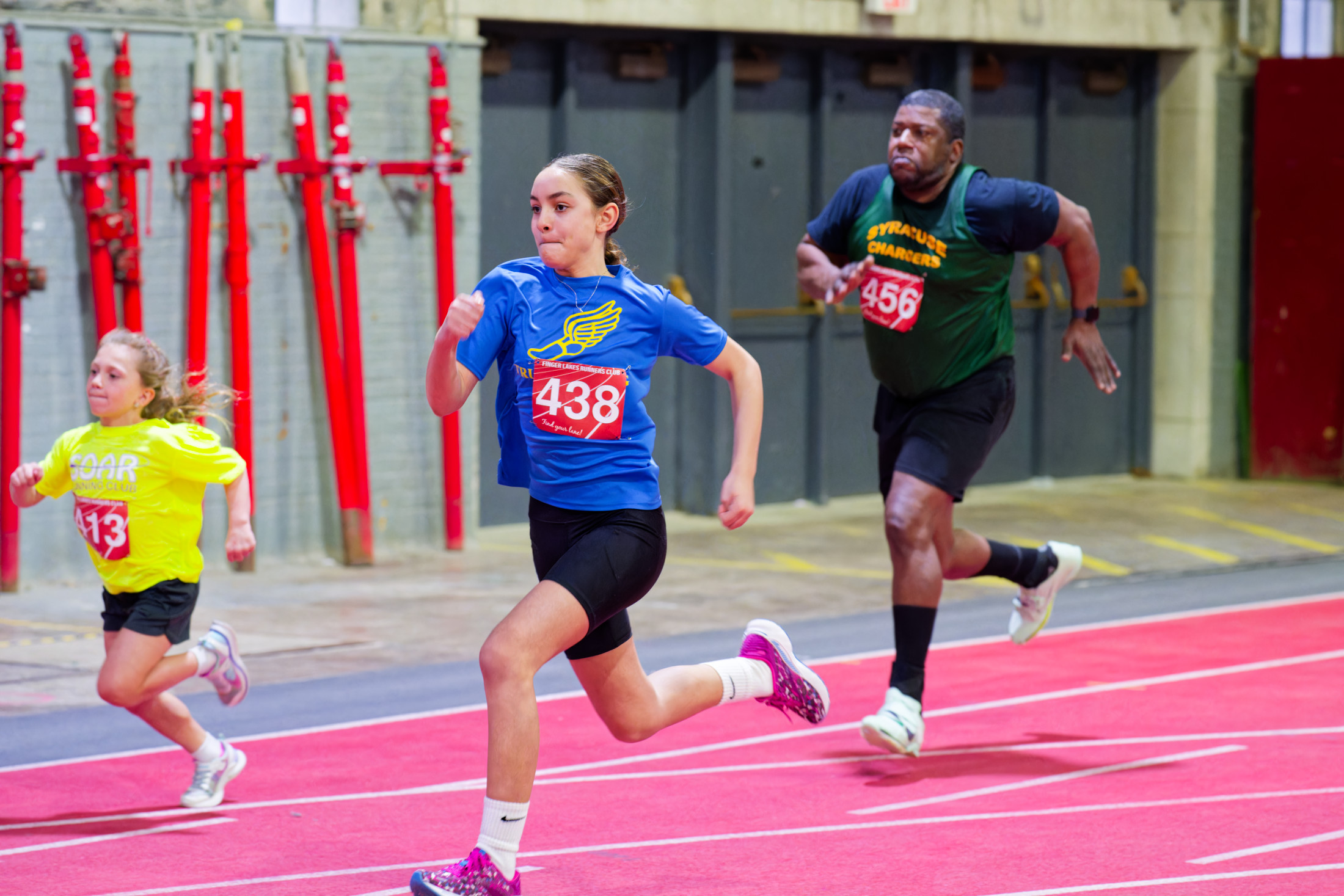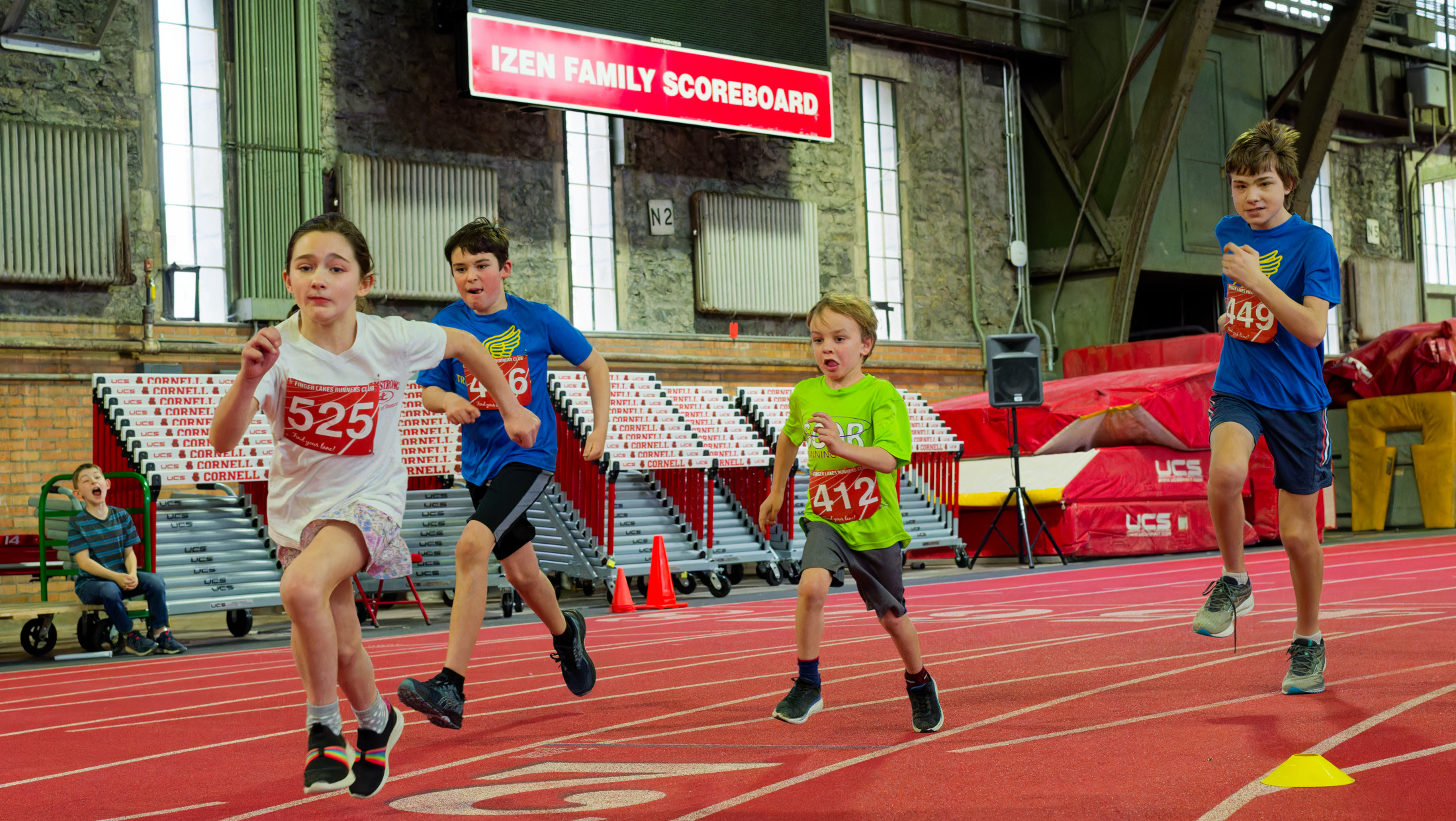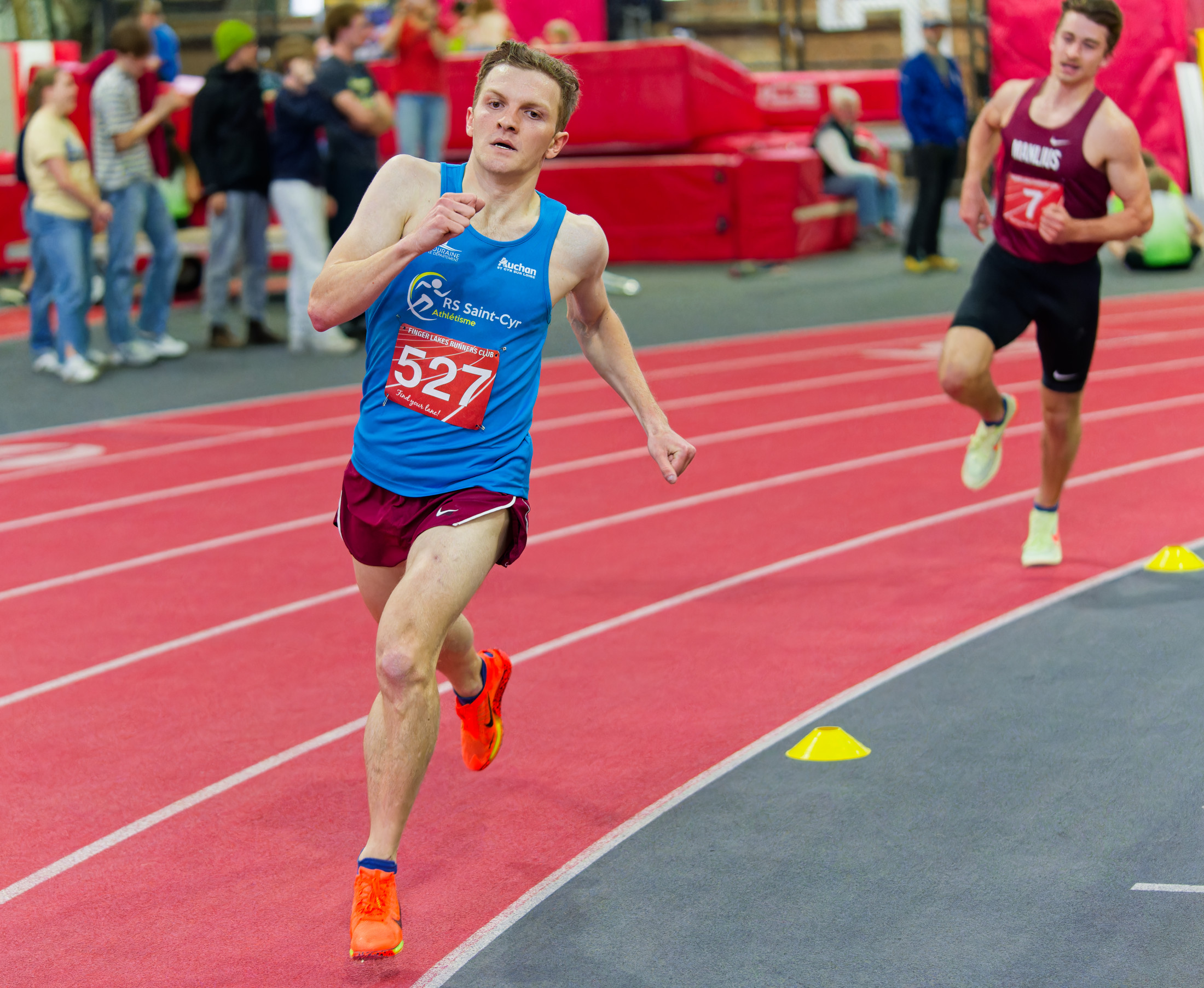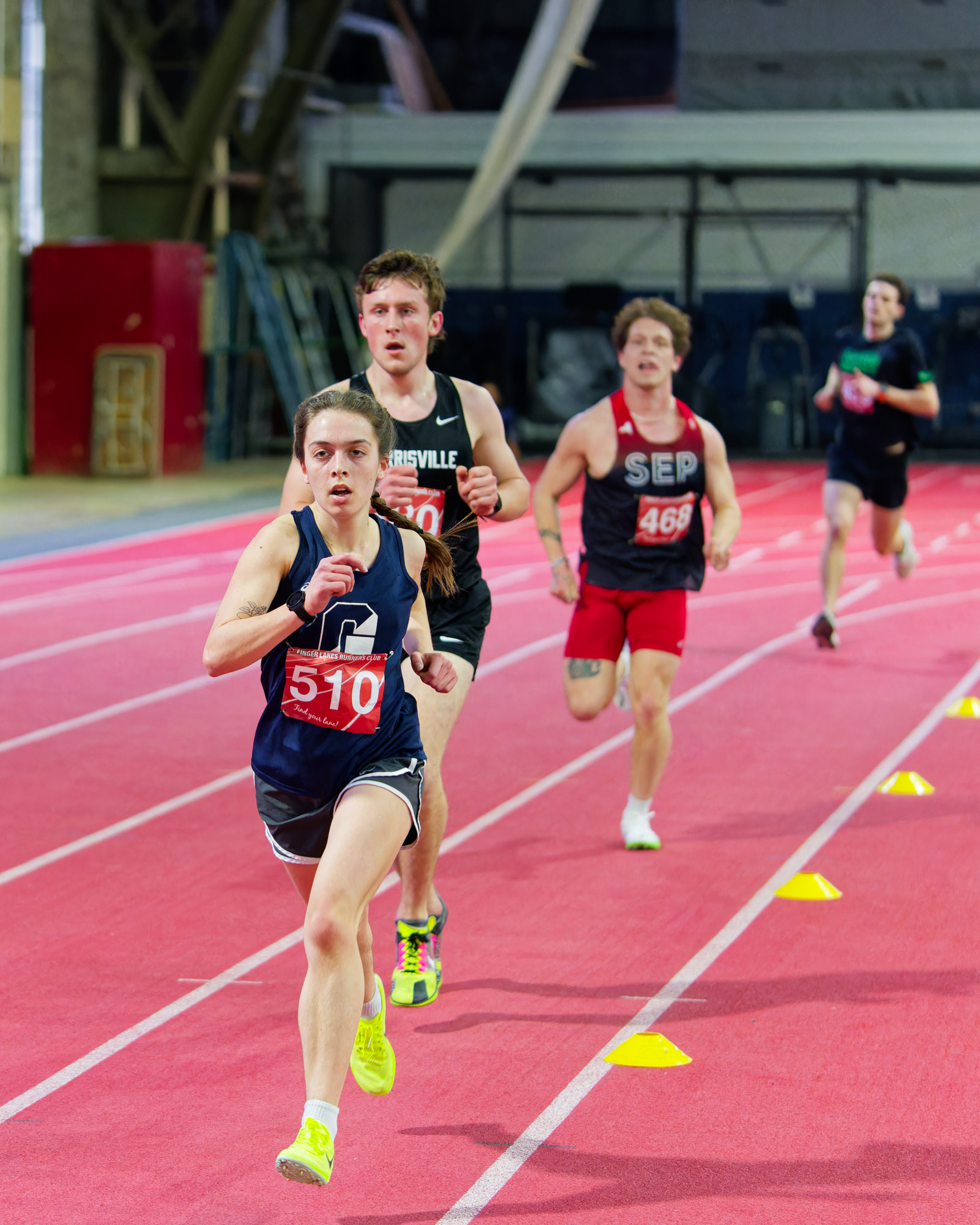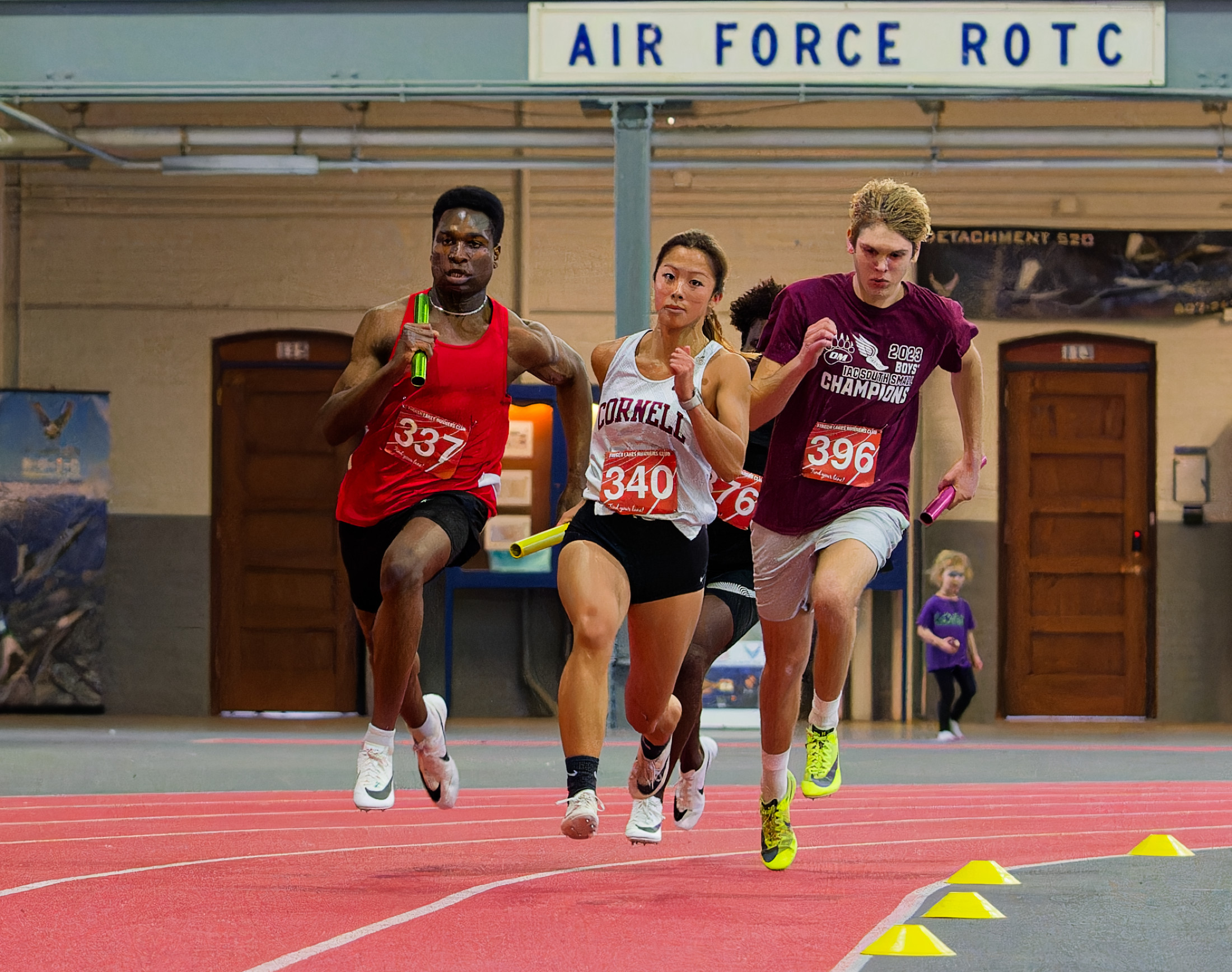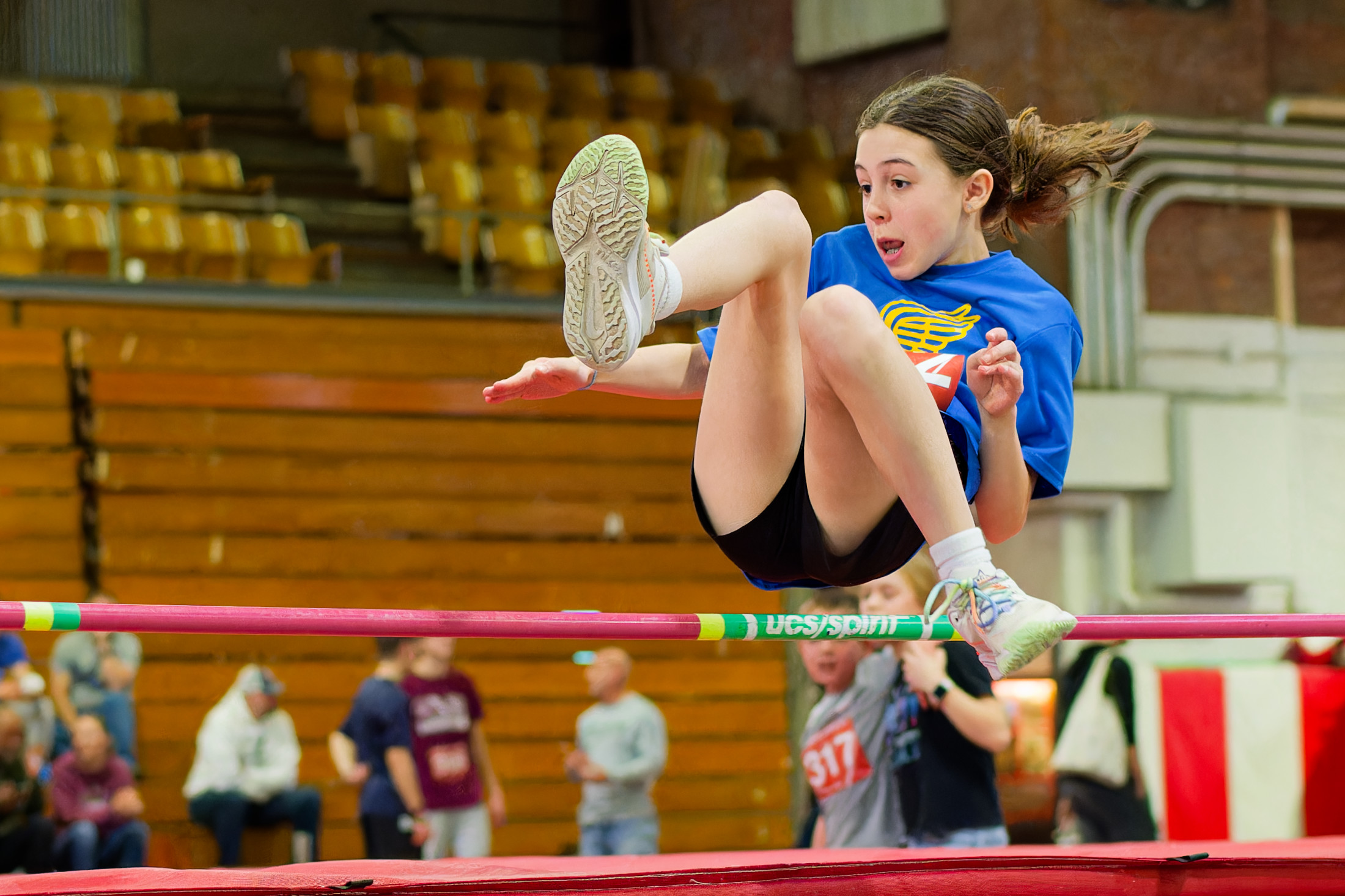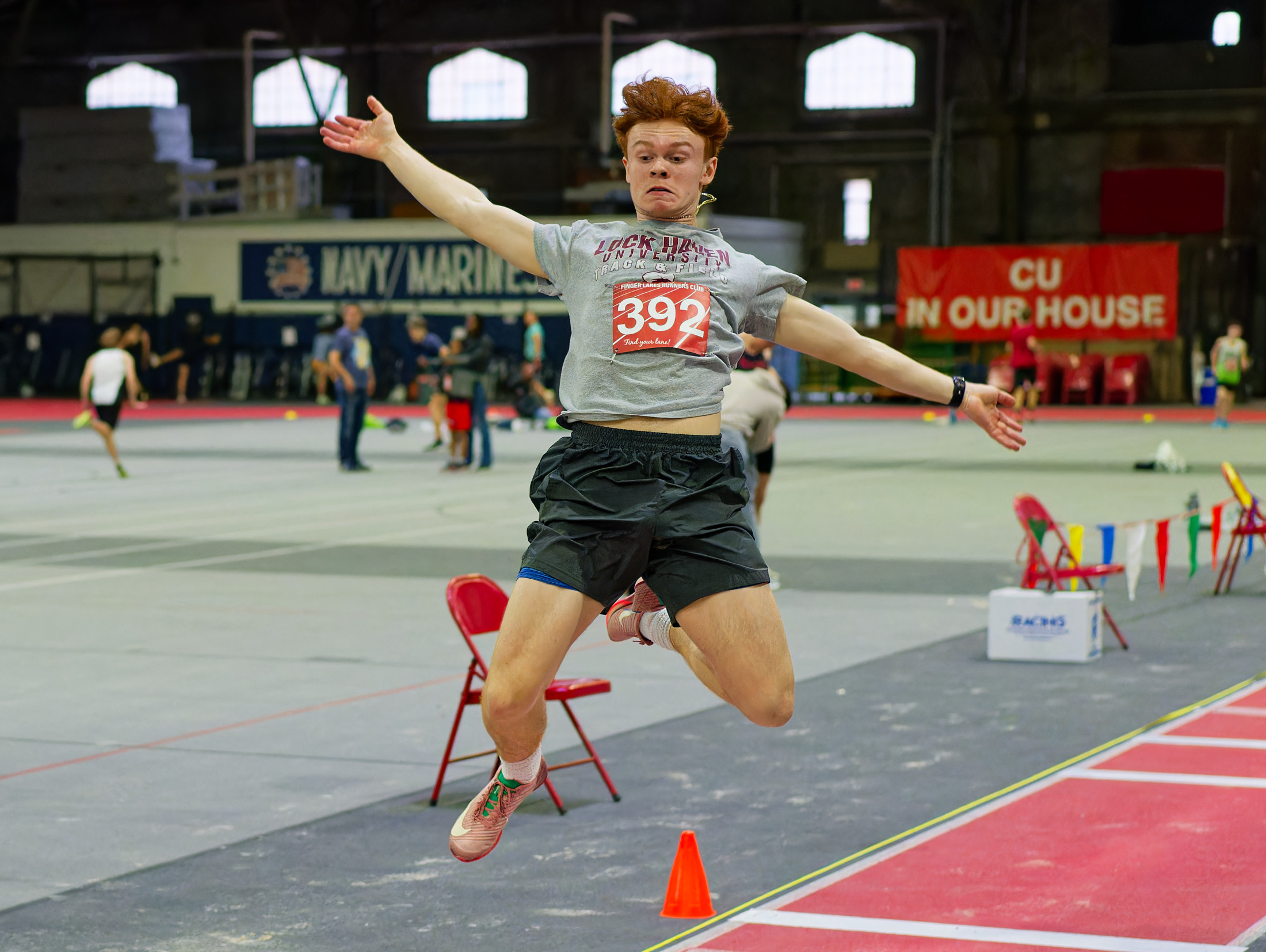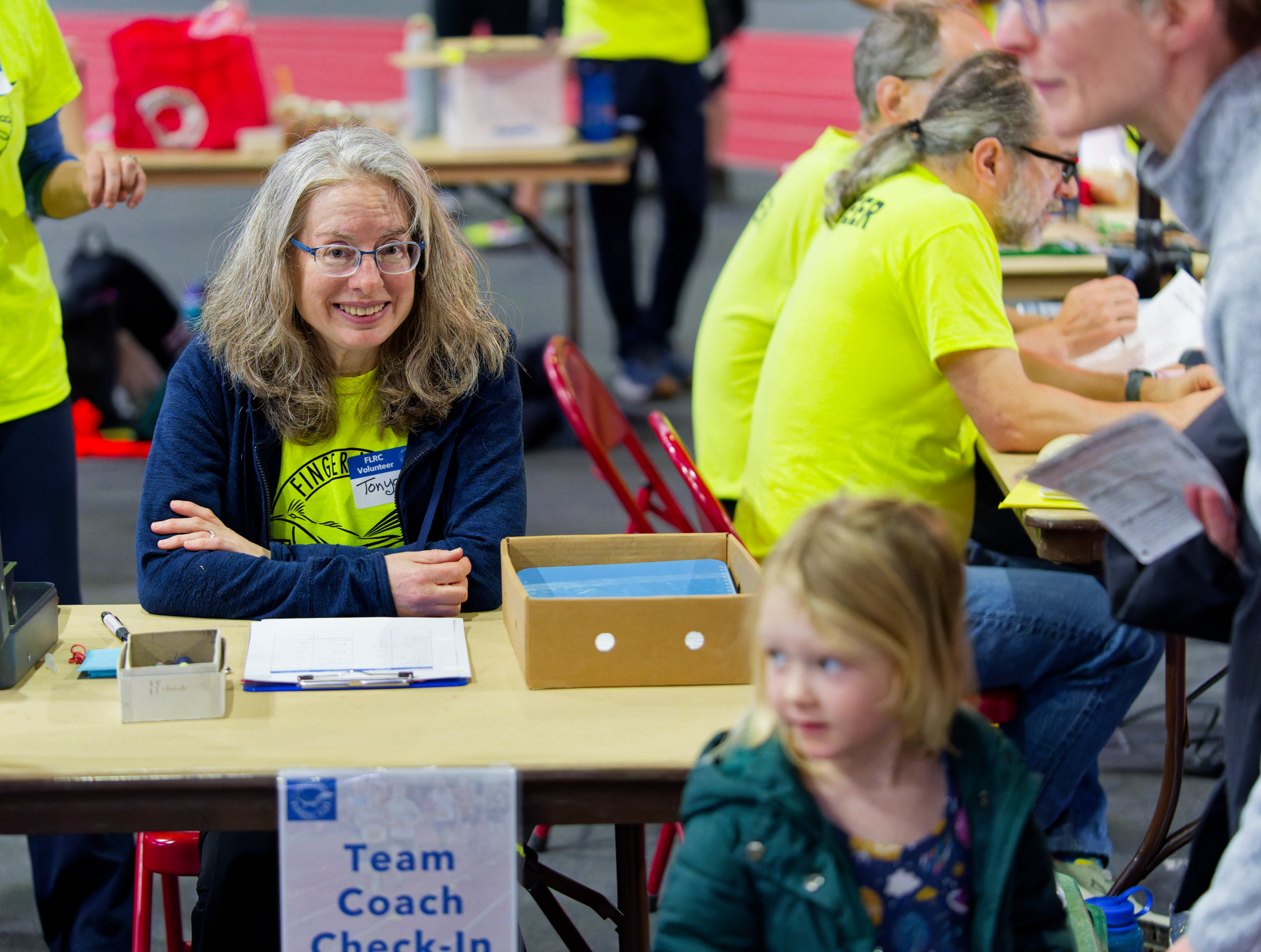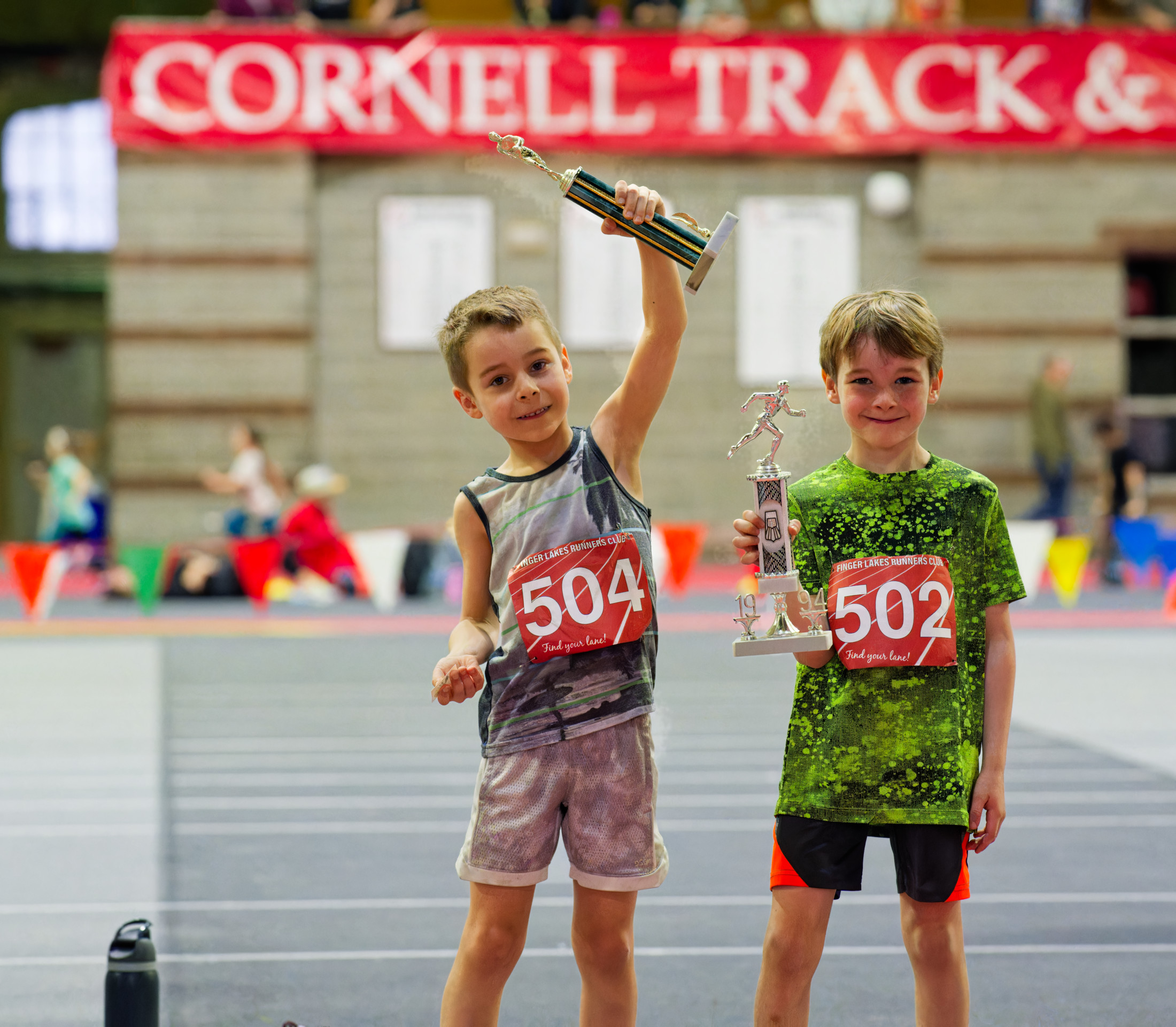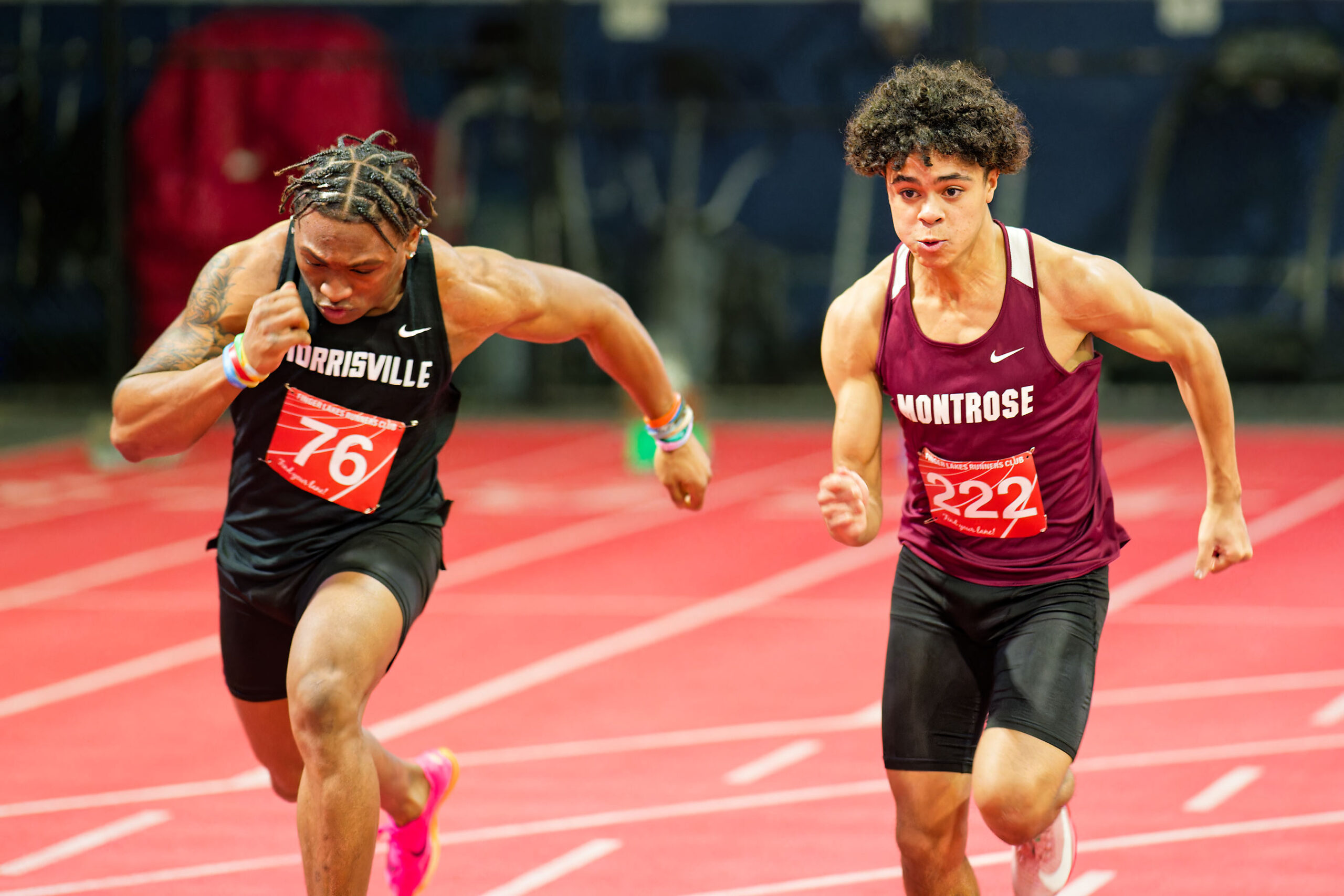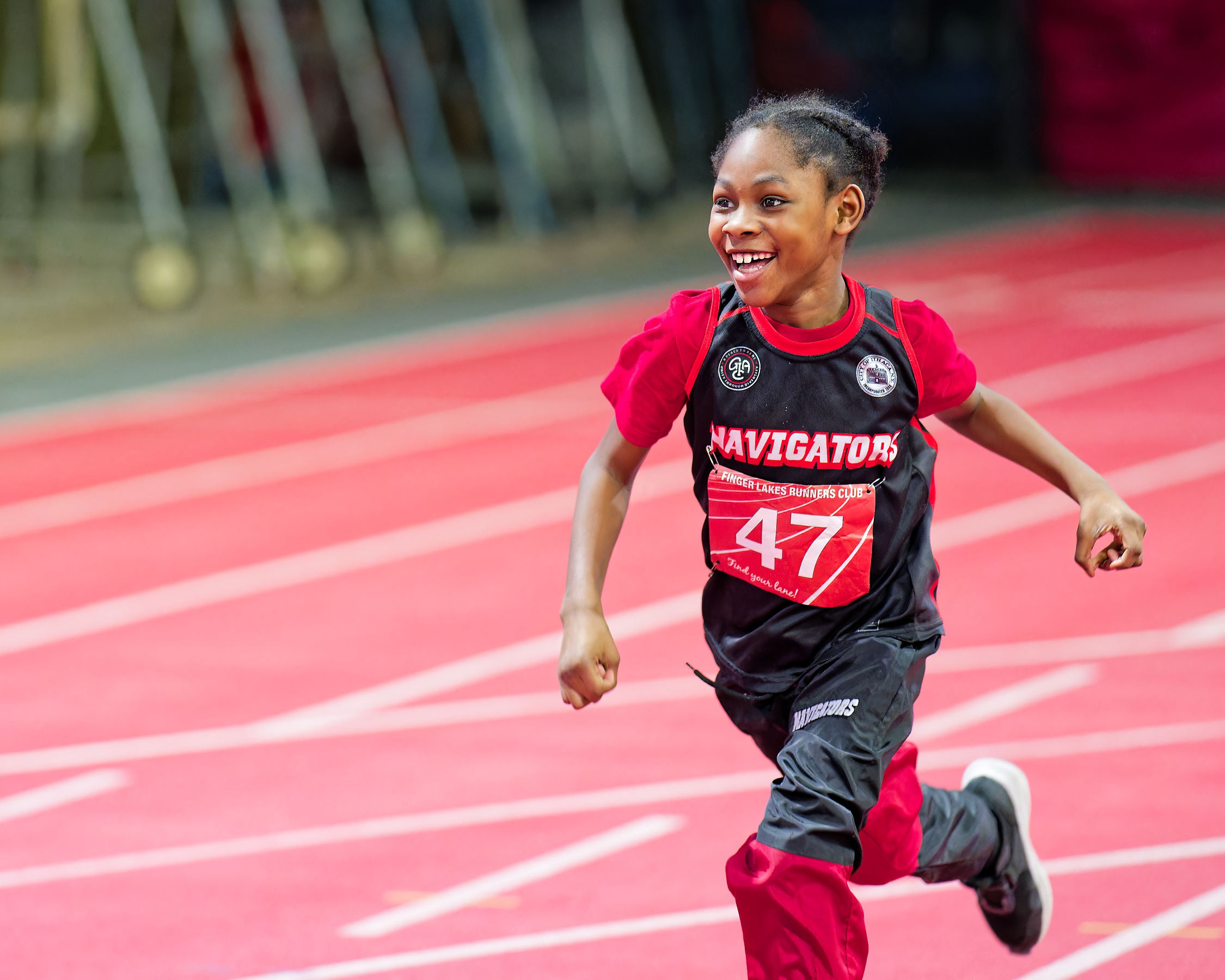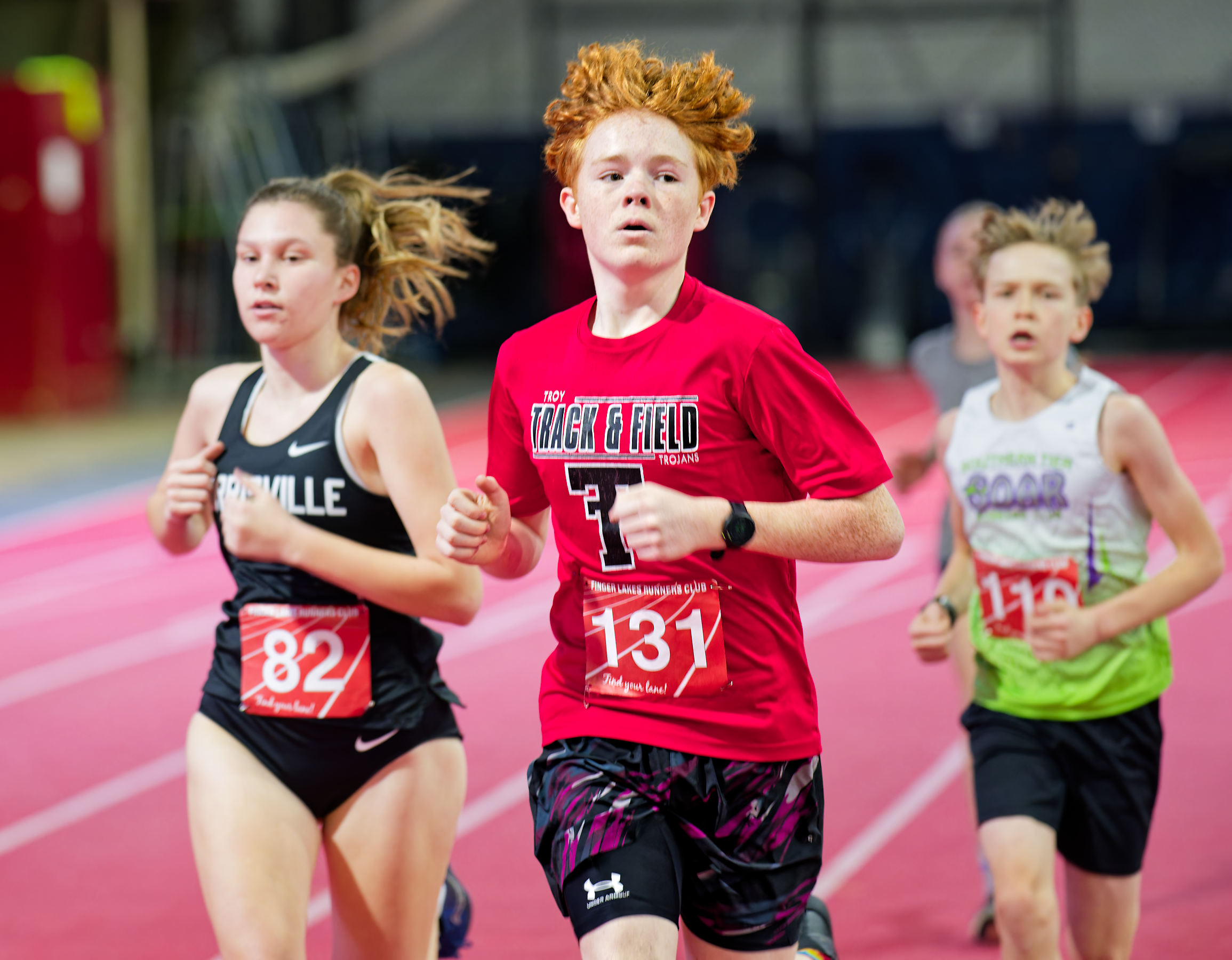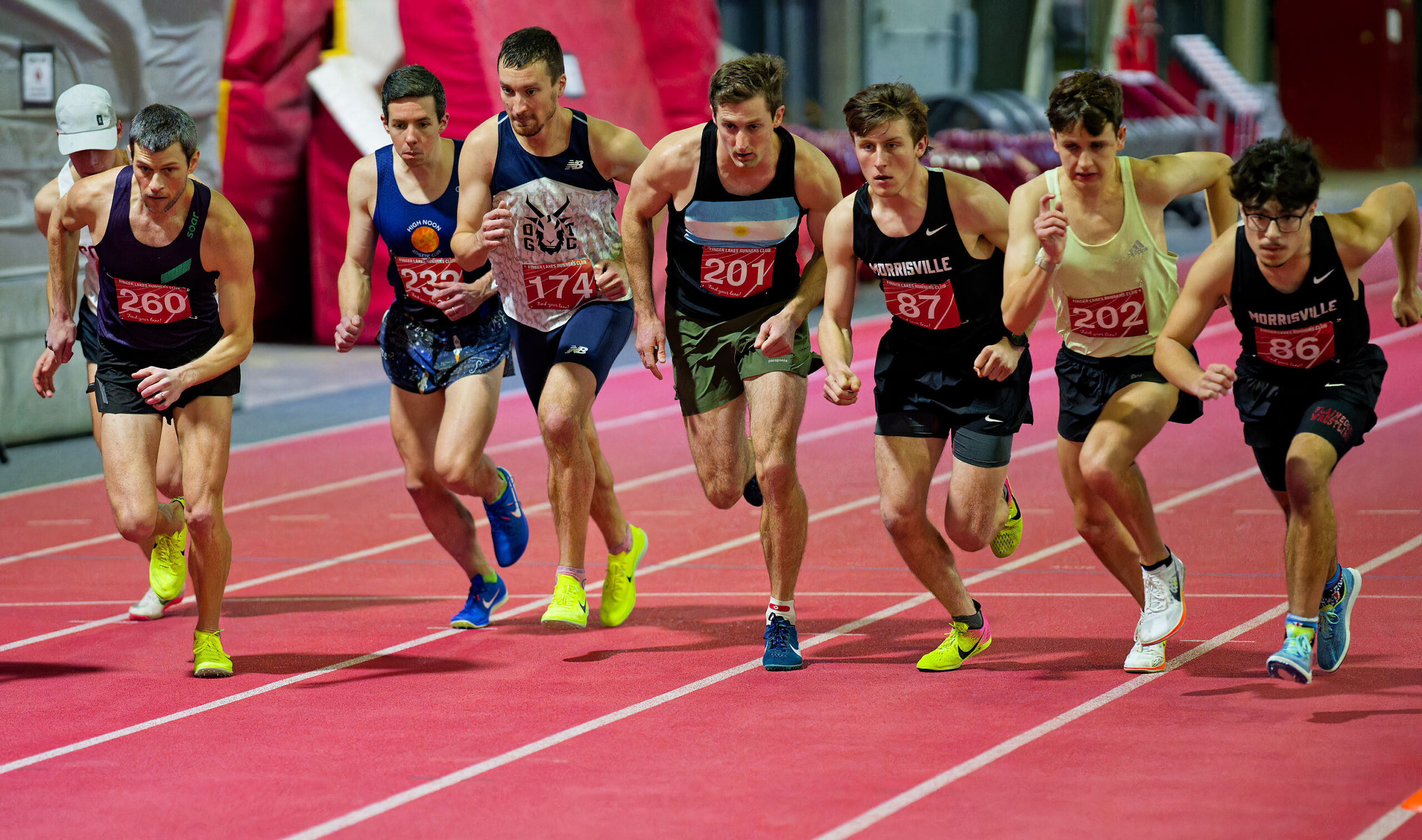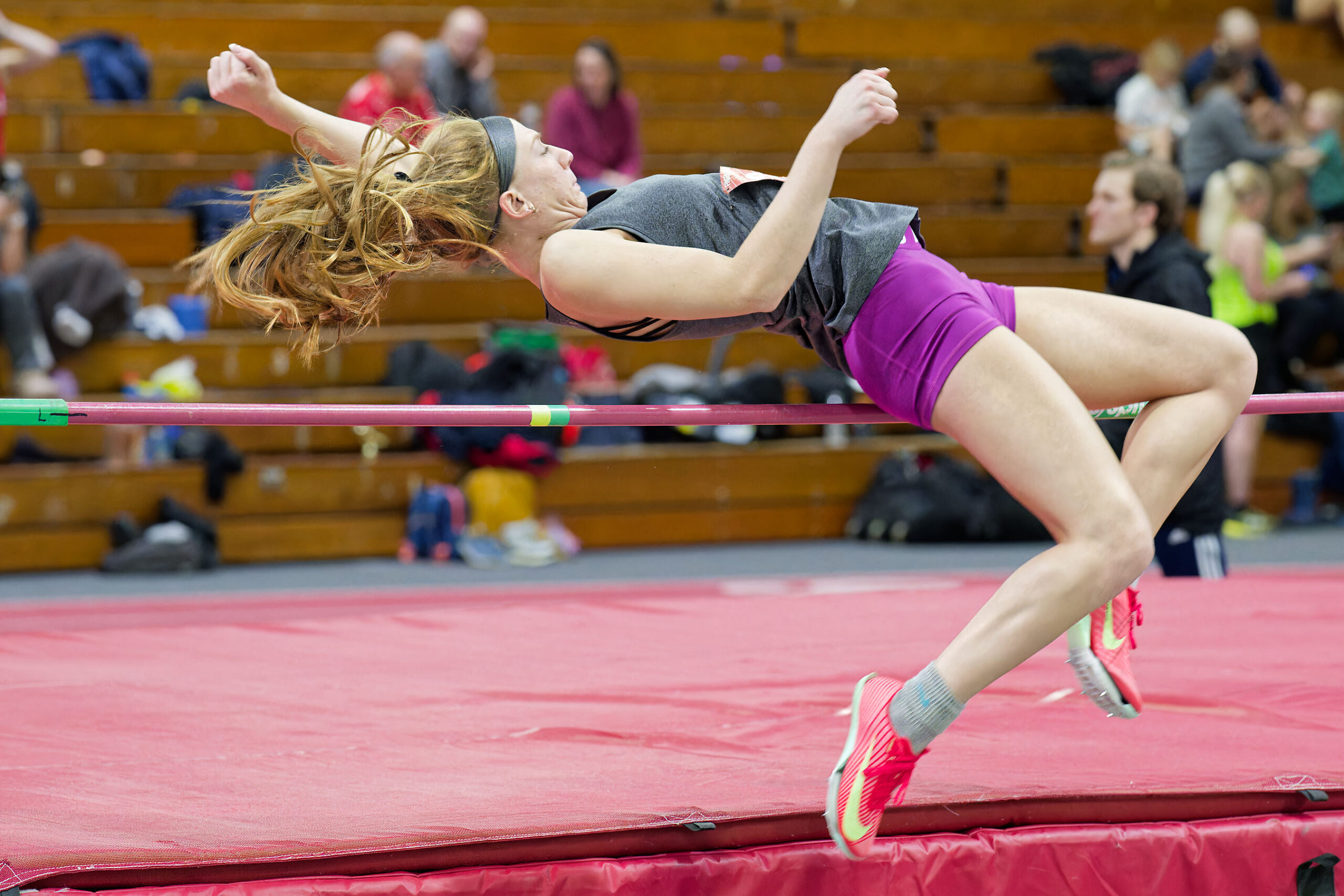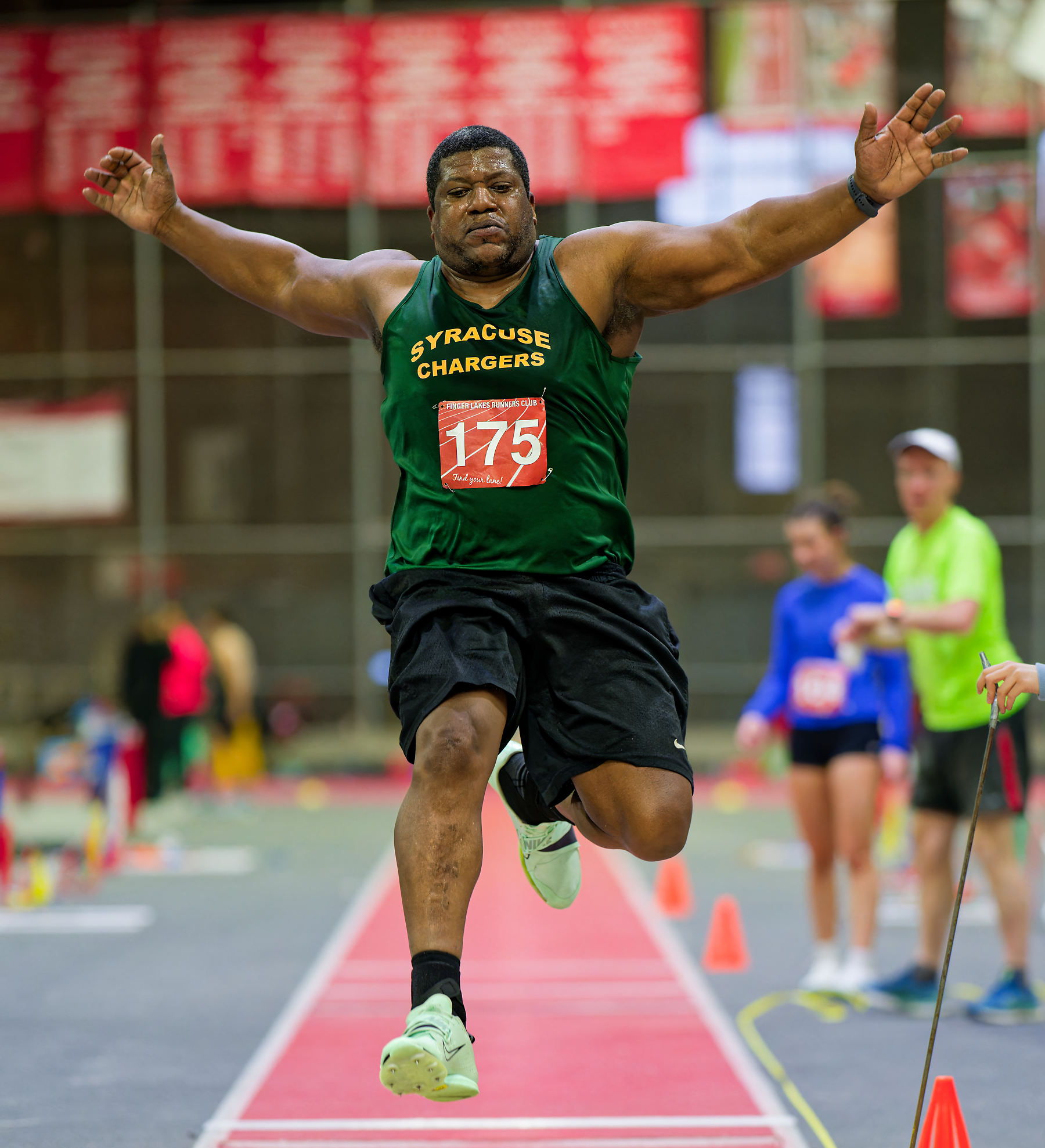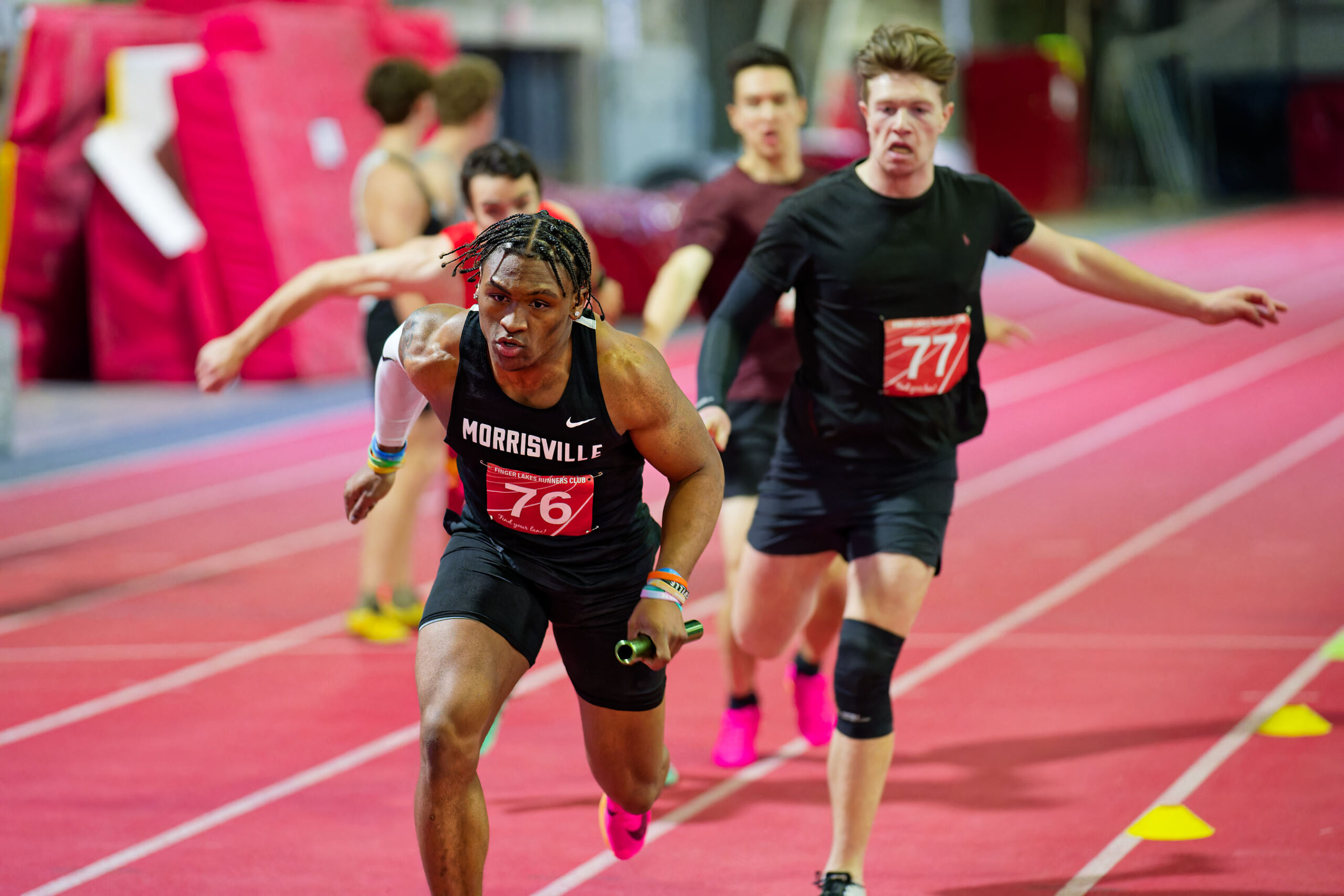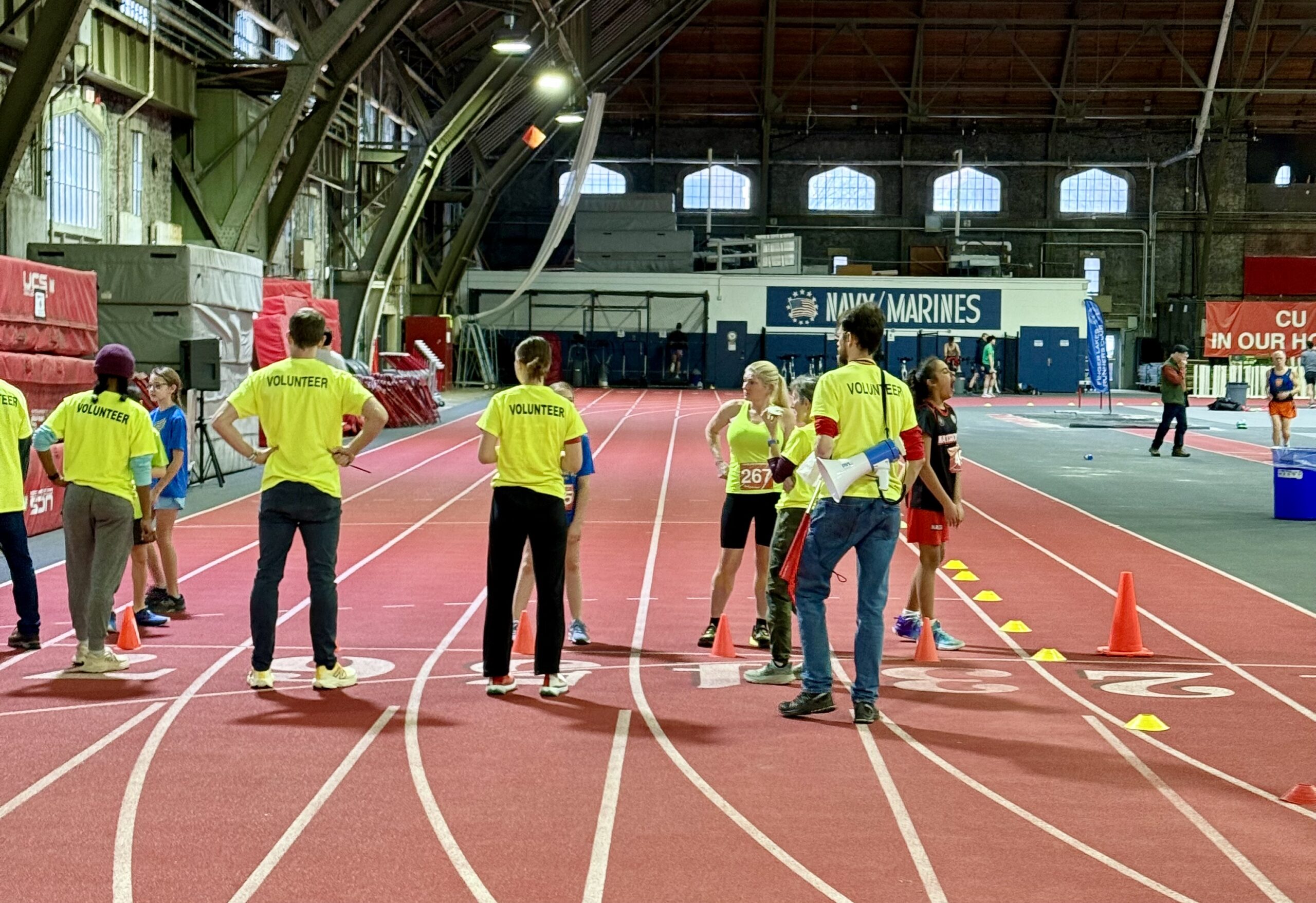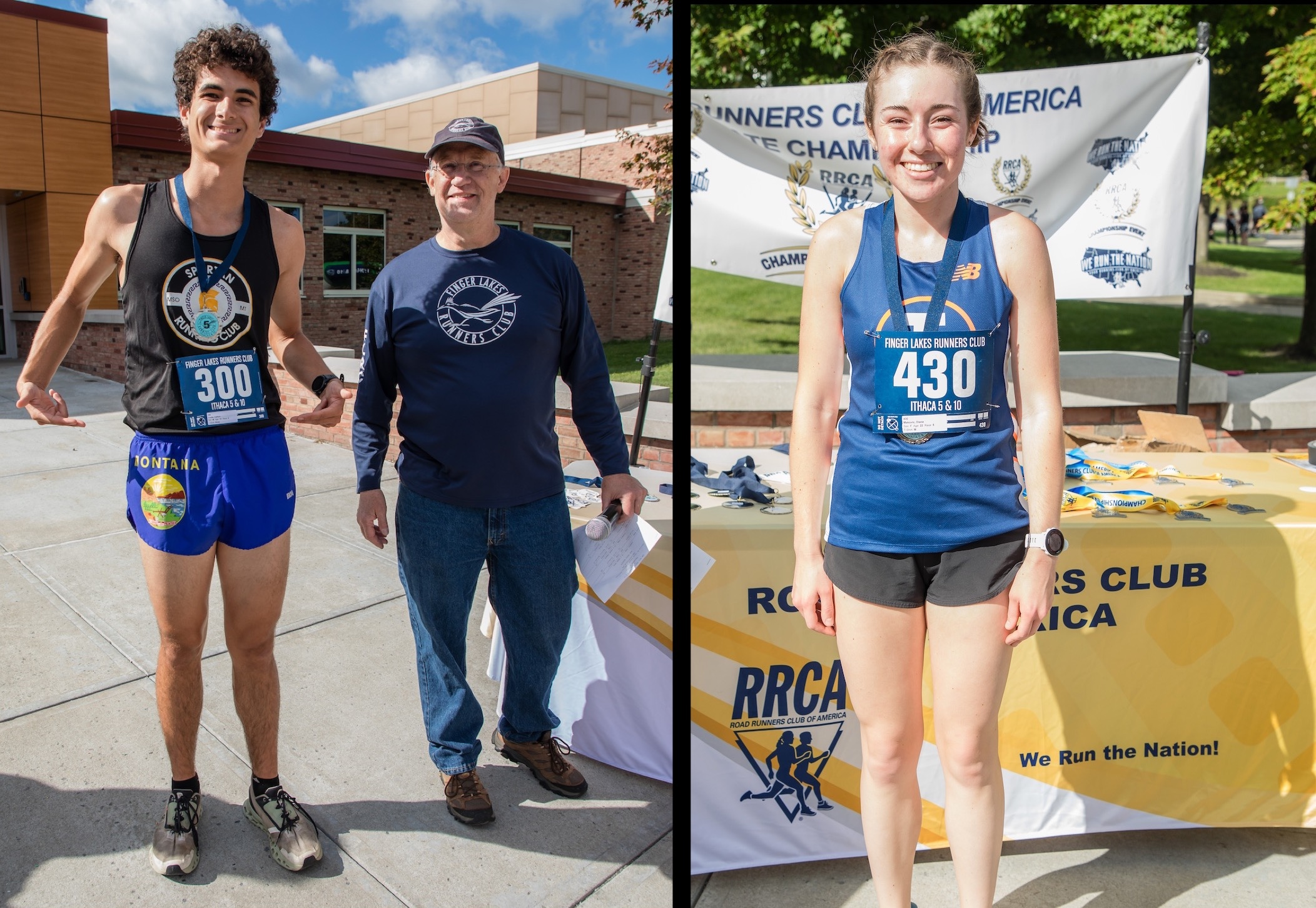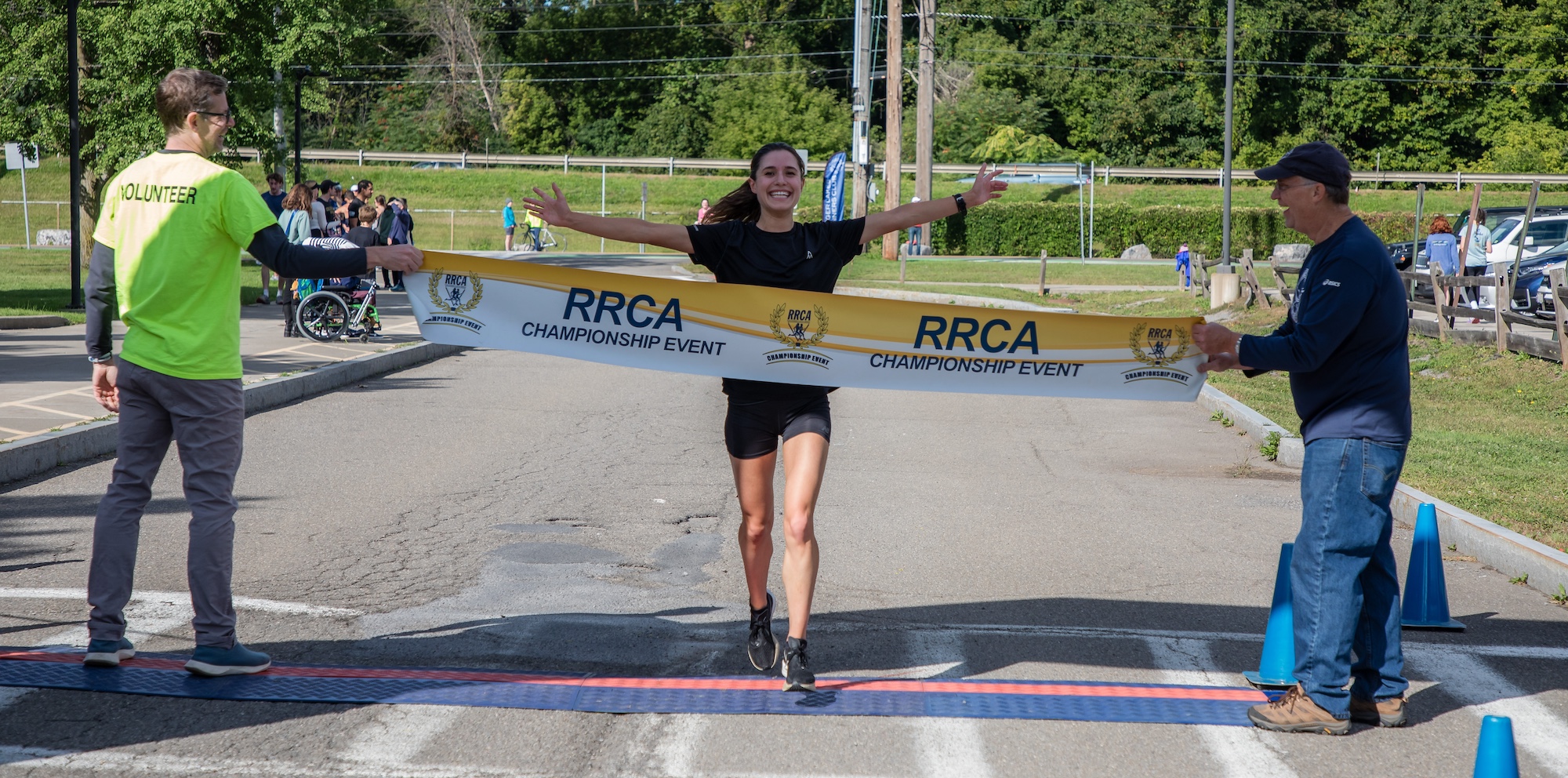The Finger Lakes Runners Club hosted its longstanding Hartshorne Memorial Masters Mile on January 18, 2025, celebrating the 56th edition of this premier masters race at Cornell University’s Barton Hall. With 68 runners competing across six heats, the meet delivered numerous exhilarating performances.
Along with the usual fast times and thrilling finishes, this year’s race featured two world records! In the first race, 85-year-old Sandra “Sandy” Folzer set a new world record for the women’s 85-89 age group with a time of 9:45.24, smashing the previous record of 13:00.96 set by Ivy Granstrom of Canada in 1999 by an astounding 3 minutes, 15.72 seconds. A few minutes later, 90-year-old Hartshorne regular Edna Hyer crossed the line in 15:10.31 to break the women’s 90-94 world record, improving on the previous mark of 15:15.28 set by Betty Lindberg in 2019 by 4.97 seconds.
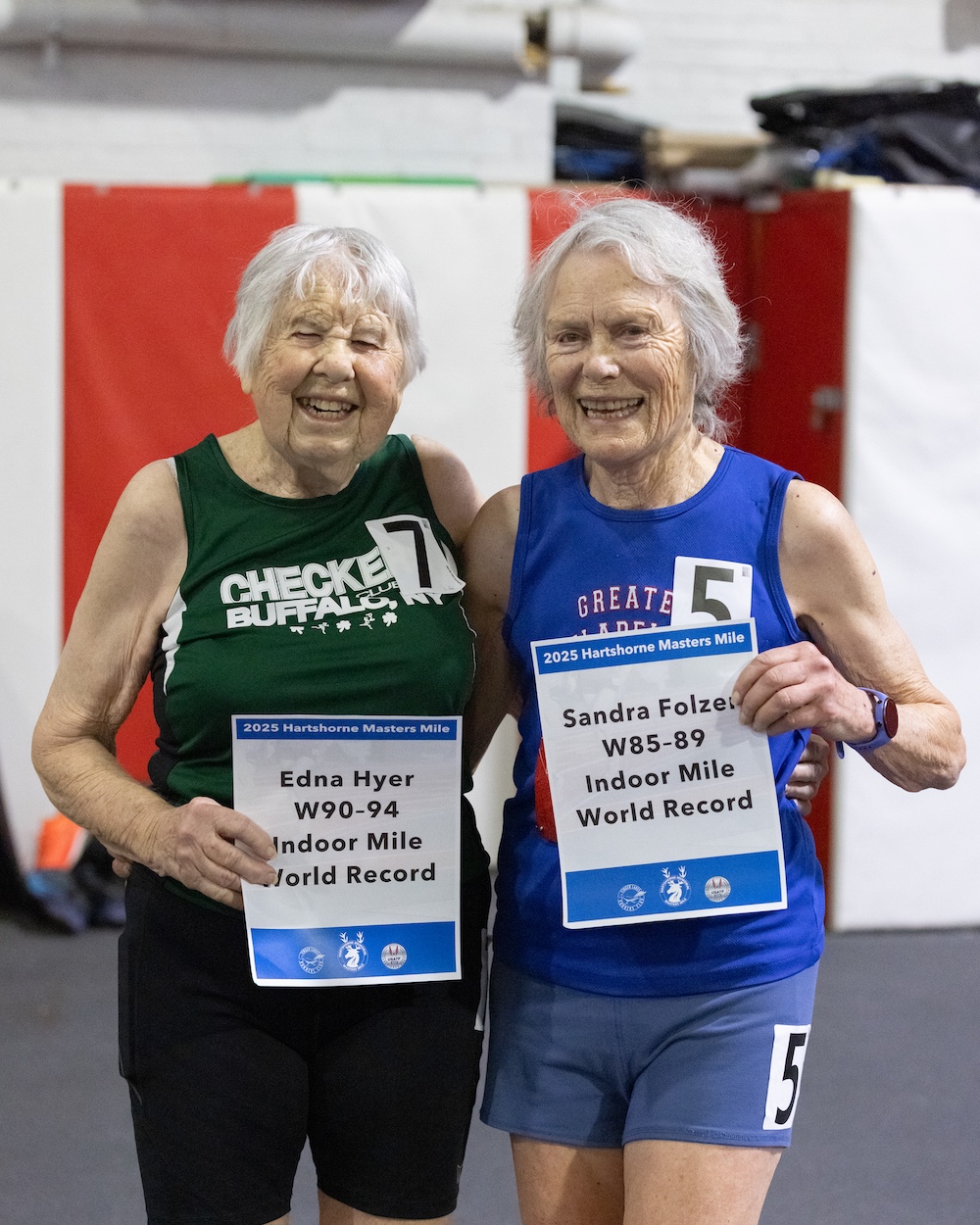
Full results are on the FLRC site with age-grade percentages and times. Leone Timing’s results are also worth a look for their split times and position changes. Don’t miss the fabulous race photos and race videos! (You can also click the header links below to watch the associated videos.)
Race Results
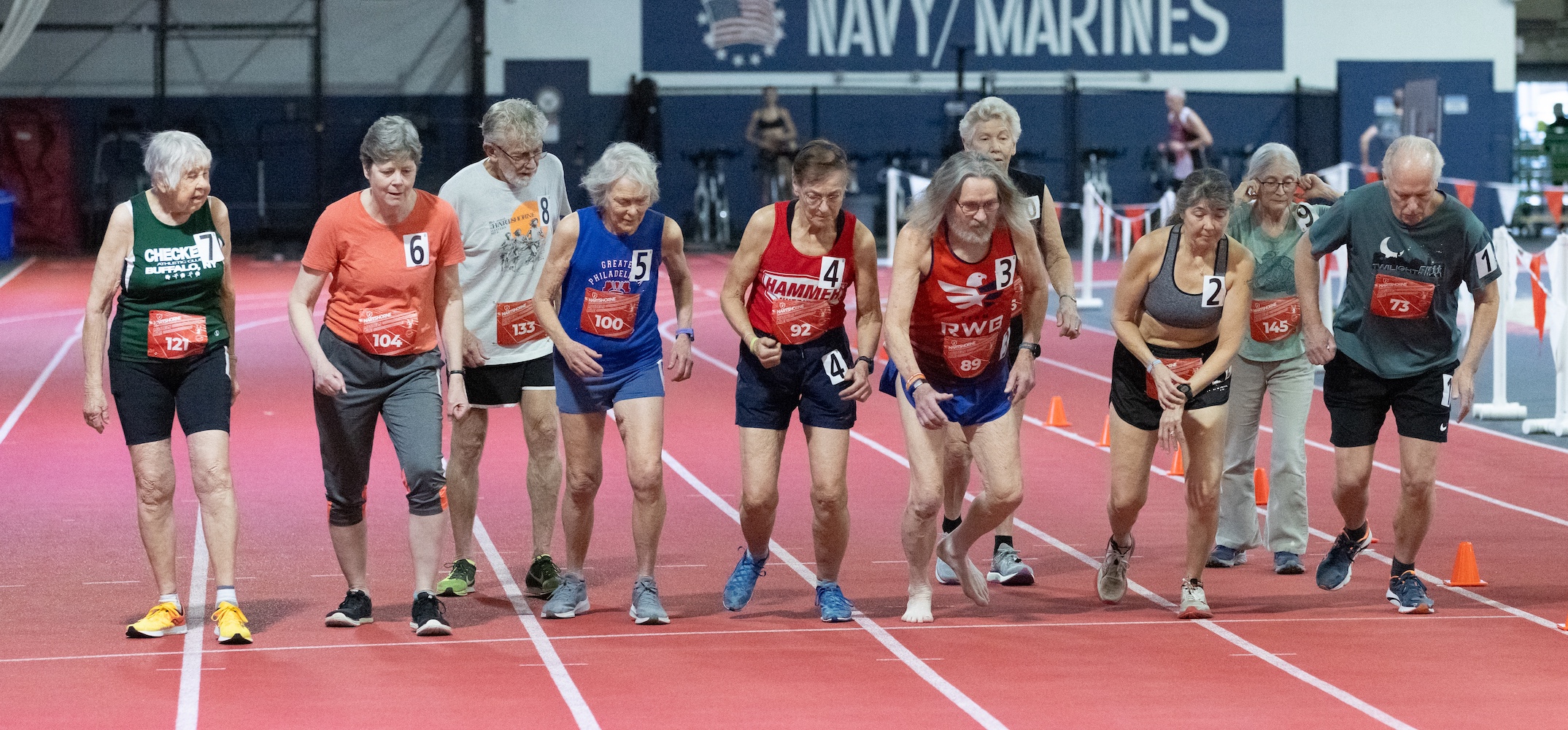
Combined Section 1: The first race of the day saw a determined effort from 67-year-old Joseph Sullivan, who crossed the line first in 8:46.19. He was followed by 76-year-old James Miner at 9:10.57. Christine Klein, 60, was third overall and led the women with a time of 9:34.13, but Sandy Folzer took fourth en route to breaking the W85 world record—she had come in knowing that she could beat it. Less certain, however, was Edna Hyer, who needed a last-lap kick to collect her W90 world record.
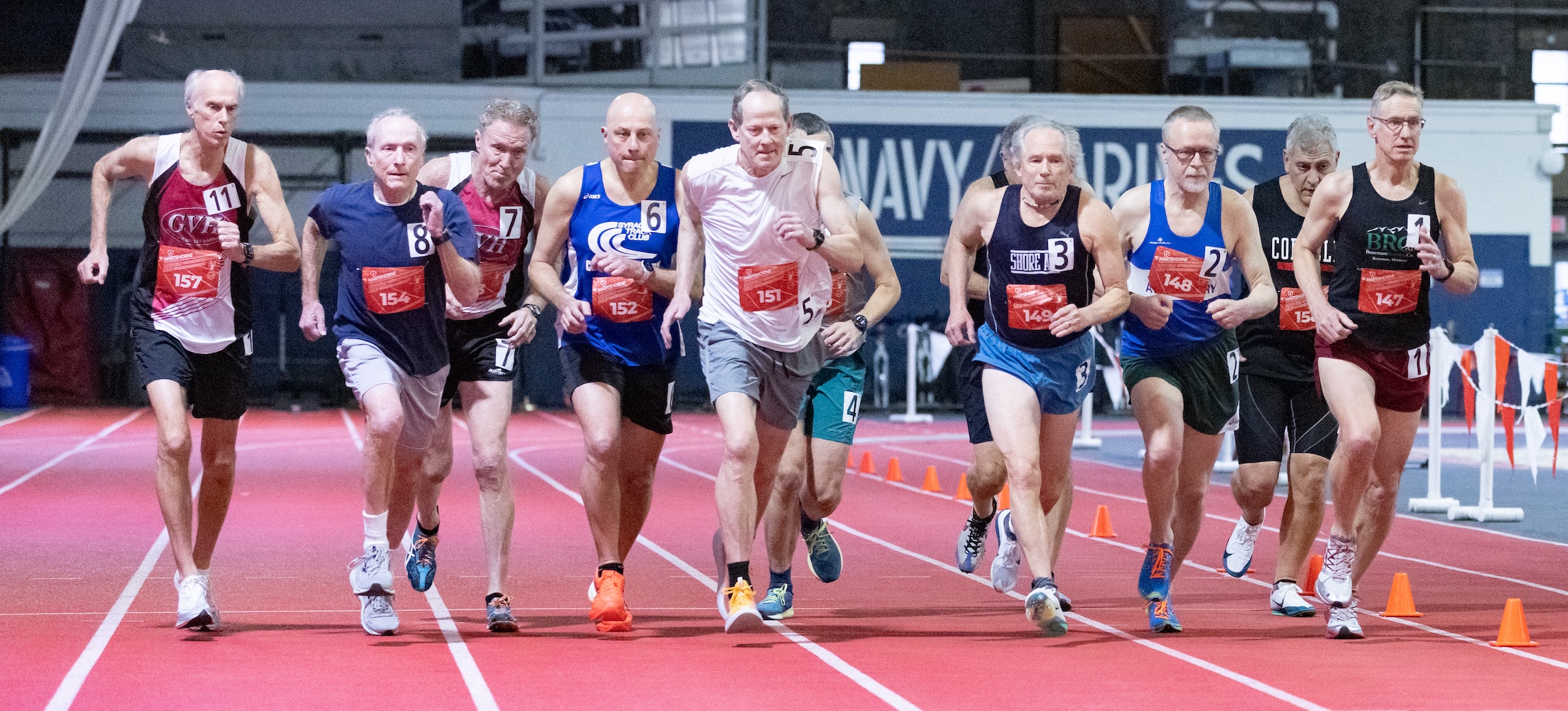
Men’s Section 2: In an exciting race, 63-year-old Steven Hoover chose the final lap to kick past David Dickensheets, 61, to win in 6:06.49. Dickensheets had led the seven laps before that, but he rallied to take second in 6:07.44. Loren Davies, 57, claimed third place half a second later in 6:07.93, edging out 60-year-old Gary Williams in 6:09.26. Spider Rossiter, 73, clocked an impressive 6:22.57 to secure the 70–74 age group victory, with Ken Hodges and Tim McMullen, both 71, not far behind in 6:46.29 and 6:50.54.
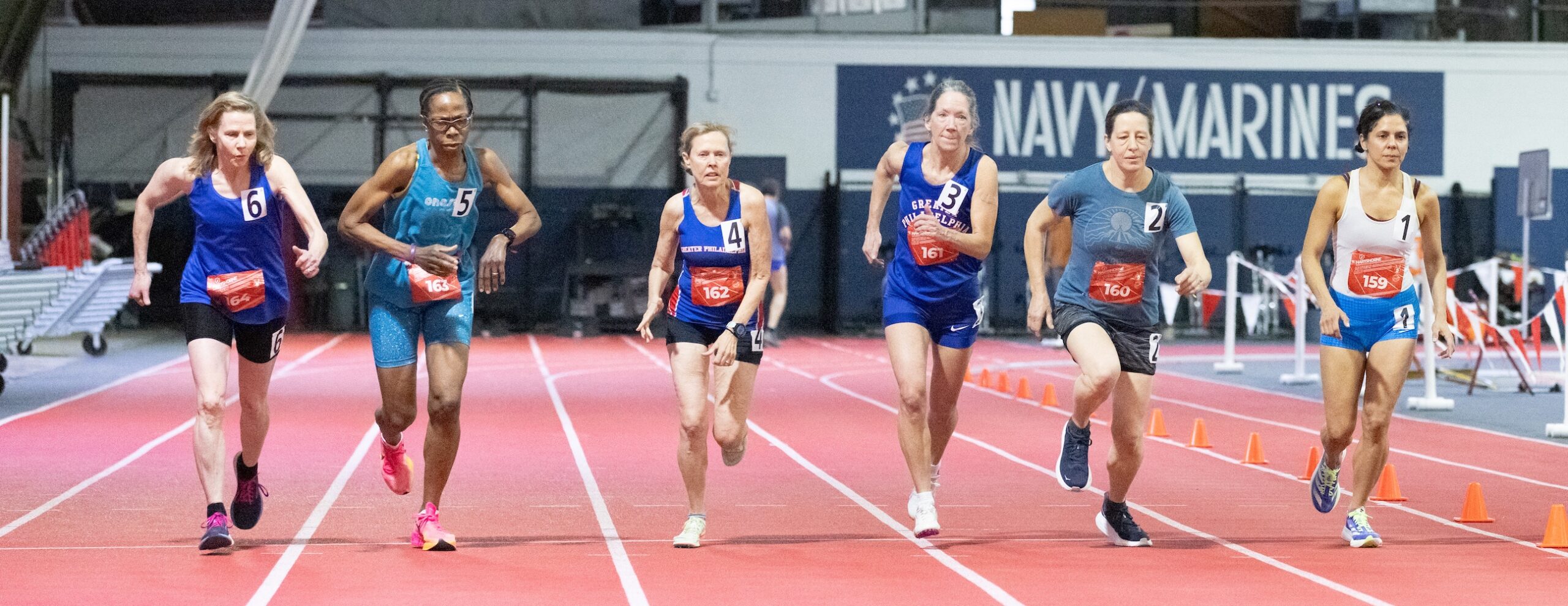
Women’s Section 2: The women’s second heat featured a standout performance from Mary Swan, 63, who finished in 6:44.92. A spirited duel for second place saw Teresa Vanek and Rebecca Elias, both 51, separated by less than a second, with Vanek finishing in 6:50.28 and Elias in 6:51.25. The remaining runners kicked in together in a tight pack, with Betsy Stewart, 61, crossing in 7:12.50, followed by Andrea Wigfall, 61, in 7:13.39, and Laura Helmerick, 65, in 7:14.42.
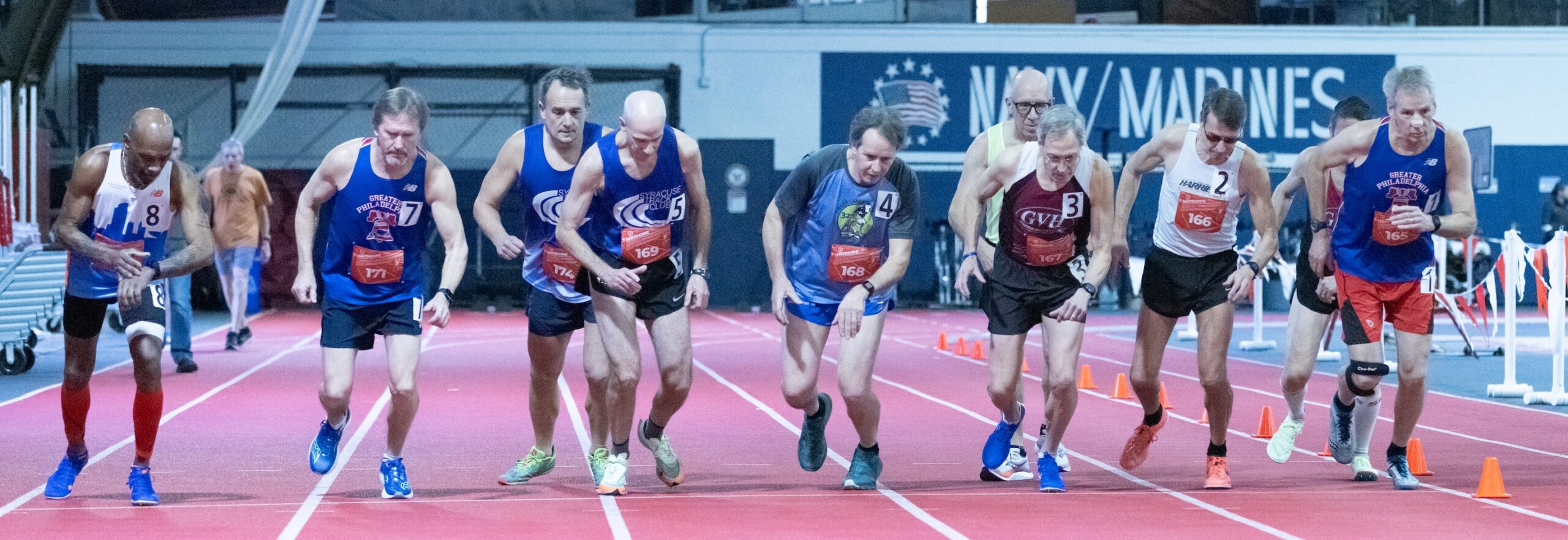
Men’s Section 3: 59-year-old Francis Burdett, coming back from a hip replacement, showcased his experience racing on the world stage to take the lead at 400m and run away from the field in 5:53.94. He was followed by Chuck Shields, 65, in 5:56.08 and Derrick Staley, 66, in 5:57.80, both delivering strong age-graded performances.
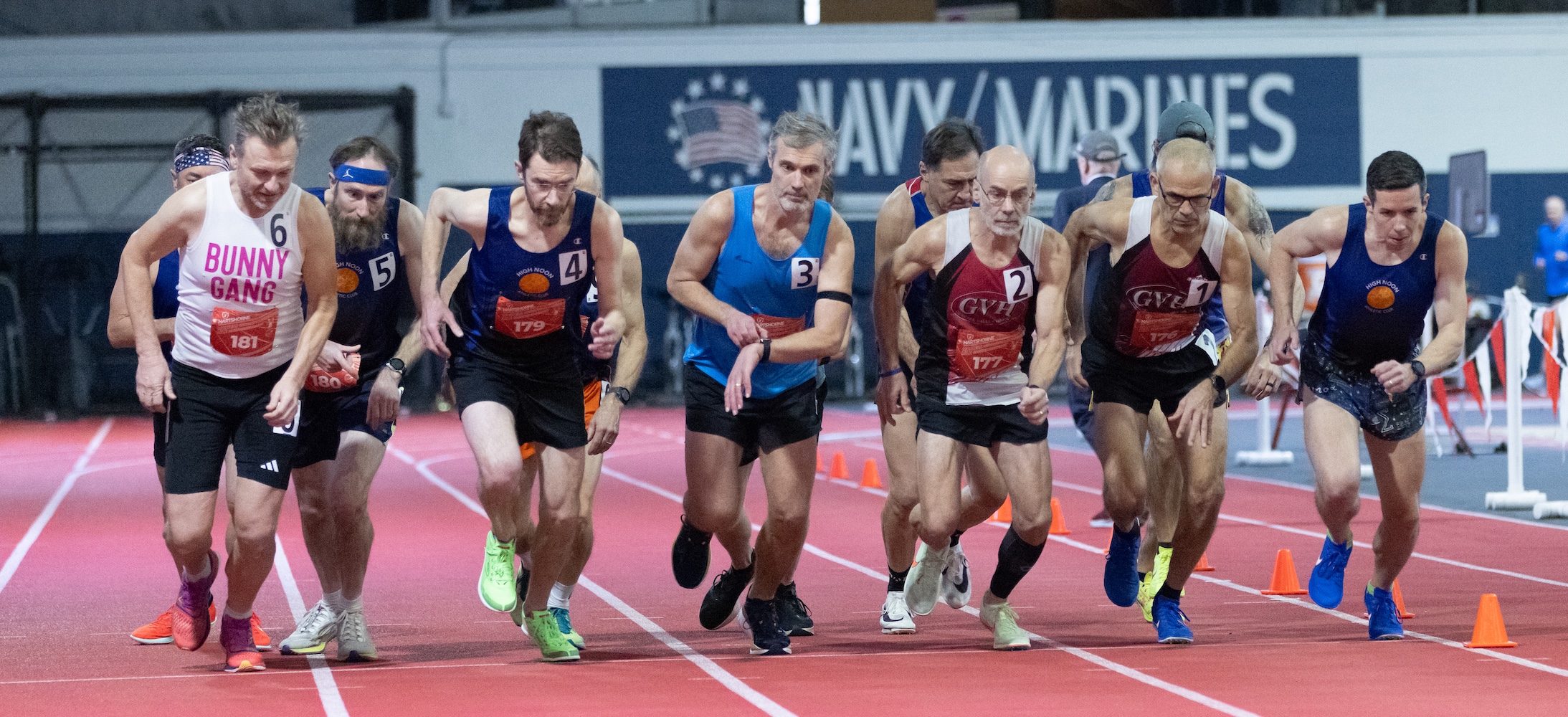
Men’s Section 4 (Elite B): Patrick Boyle, 41, took the lead just after the 800m and held the lead to take first place in 5:17.70. Joe Mora, 63, claimed second in 5:19.69—good for the third place age-graded percentage of 88.07%, while Peter Frazier, 46, completed the podium with a 5:23.43 finish. Notably, Keith Davies and Casey Carlstrom, both 65, finished in a virtual tie at 5:42.97 and 5:42.98, respectively.
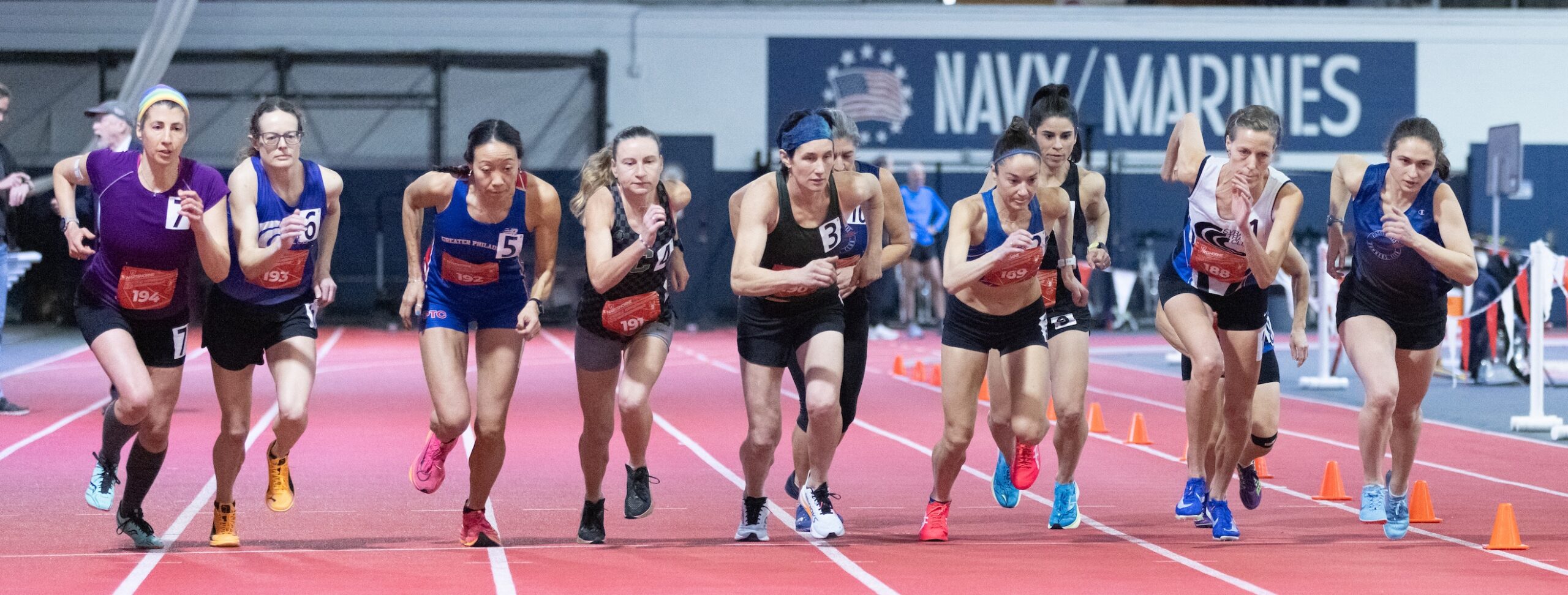
Women’s Section 3 (Elite A): Sascha Scott, 49, continued her streak of Hartshorne wins and added to her illustrious resume, which includes the American W45 indoor mile record and outdoor 1500m W45 record. She took over from the rabbit with 800m left to finish in 5:07.91, earning the top age-graded percentage of the day at 93.05%. Karen Bertasso Hughes, 40, finished second in 5:26.13, good for the third-place women’s age-graded percentage of the day at 82.10%. Jennifer Selig, 42, placed third with a time of 5:33.91. Behind them, Anne Riordan, 40, came through in 5:35.28, followed by Alison Schwalm, 47, in 5:40.95, earning the second-highest women’s age-graded percentage of the day at 84.25%. Liz Hartman, 42, rounded out the top six in 5:42.97, good for a PR, closely followed by Donna Langerfeld, 38, in 5:43.92. Jade Barth, 45, finished in 6:04.21, just edging out Debra Vertoske, 48, at 6:05.40. Closing out the race was Julie Barclay, 51, in 6:25.13.

Men’s Section 5 (Elite A): The final men’s race went out hot and stayed that way, with 41-year-old Sam Morse leading from the gun to secure his second Hartshorne victory in a row in 4:29.46, the fastest winning time since 2014. 49-year-old Nicholas Conway followed in 4:35.31, achieving the highest men’s age-graded percentage of the meet at 90.86%. Louie DiNuzzo, 42, took third with a strong 4:36.23 performance. Close on their heels, Mark Williams, 52, a three-time Hartshorne champion and the holder of the M50 indoor 800m world record, clocked 4:43.34, with Ken Crawford, 40, finishing in 4:44.40. Chuck Terry, 42, and Jon French, 41, took sixth and seventh in 4:47.95 and 4:48.87, respectively. Scott Weeks, 52, crossed the line next in 4:52.95, followed by Peter Boyd, 50, in 4:59.38, rounding out a highly competitive race.
Volunteers
Hartshorne requires a significant volunteer effort, starting with race director Adam Engst and assistant directors Charlie Fay and Tom Hartshorne. Victoria Fitzsimmons, Philip Hathaway, and Tonya Engst arrived early to set up. James Miner and Laura Taylor ably managed the registration table. Shana Snyder serenaded us with the national anthem, Bruce Roebal reprised his role as clerk of course, and Jan Hunsinger started all the races. Tonya Engst coordinated volunteers. Our speedy rabbits were Bella Burda, Patrick Milano, and Adam Pacheck. Steve Gallow took hundreds of photos, and Jorge Cuevas was our videographer. John Whitman counted laps, Bob Talda read lap splits, and Rich Bernstein monitored the finish line. Aaron Proujansky, Ben Dickensheets, Tom Hartshorne, and Jesse Koennecke helped keep bystanders off the track during the races. Marte Reps coordinated the award luncheon with check-in help from Joanne Button. Thanks to you all!
Sponsors
Finally, we’d like to thank the sponsors who made this year’s Hartshorne possible. It takes a lot of money to put on a national-level meet like this, with rabbits, an announcer, extensive race photos, video of all the races, a post-race banquet, and cash prizes to attract some of the top talent in the US and Canada. The race’s 2025 sponsors include Sean Nicholson, Joe Daley, the Hartshorne Family, Javier Martinez, Cayuga Health, and Bangs Ambulance. Also, thanks to Cornell University for allowing us to race in Barton Hall, the Cornell Track & Field Team for letting us compete before their meet, and Leone Timing for world-class timing services. The masters running community is tremendously appreciative of their support. Just because we’re not so young anymore doesn’t mean we don’t take our racing seriously!
See you next year!

